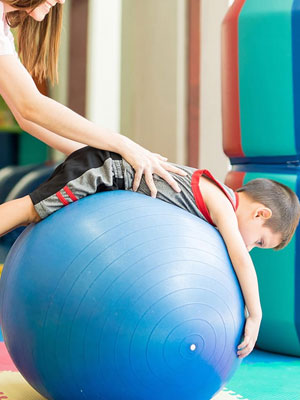- +91 7680015156
- advaithacdc@gmail.com
Sensory integration
- Home
- Services
- Sensory integration
Sensory integration plays a pivotal role in a child's development, influencing their ability to navigate the world around them. This process is crucial for various aspects of daily life, impacting physical, cognitive, and social-emotional development. In this article, we will delve into what sensory integration is, explore its roles, and highlight the significant benefits it brings to a child's overall growth.
What is Sensory Integration?
Sensory integration is the brain's ability to organize and interpret information received through the senses. These senses include sight, sound, touch, taste, smell, and the sense of movement and body awareness (proprioception). For children, the integration of sensory input is fundamental for building a foundation for learning, behavior, and overall well-being.
Roles of Sensory Integration in Child Development
Motor Skills Development
Sensory integration is closely linked to the development of motor skills. Through sensory input, children learn to coordinate their movements, improving both fine and gross motor skills. This includes activities such as holding a pencil, tying shoelaces, or participating in sports.

Cognitive Development
The integration of sensory information helps children process and understand the world around them. It contributes to cognitive skills such as attention, memory, problem-solving, and learning. A well-integrated sensory system allows a child to focus on tasks, filter out irrelevant information, and make sense of their surroundings.
Emotional Regulation
Sensory integration plays a vital role in emotional regulation. Children with well-developed sensory systems are better equipped to manage stress, anxiety, and frustration. Sensory input provides a foundation for emotional resilience and the ability to cope with various challenges.
Social Skills Building
Successful social interactions often depend on sensory processing. From interpreting facial expressions to understanding social cues, sensory integration contributes significantly to the development of social skills. Children with effective sensory processing are more likely to engage in cooperative play, share experiences, and form meaningful connections with peers.
Academic Success
Sensory integration is closely tied to academic success. Children who can effectively process sensory information are better equipped to engage in learning activities. They can sit still, attend to tasks, and absorb information more efficiently, laying the groundwork for academic achievements.
Benefits of Sensory Integration in Child Development
Improved Concentration
A well-integrated sensory system enhances a child's ability to focus and concentrate. This, in turn, positively impacts their academic performance and learning outcomes.
Enhanced Motor Coordination
Sensory integration contributes to improved motor coordination, enabling children to engage in various physical activities with confidence and skill.
Increased Self-Regulation
Children with well-developed sensory systems are better at self-regulation, managing their emotions and behaviors in different situations.
Positive Social Interactions
Effective sensory integration fosters positive social interactions, as children can more easily navigate social cues and form connections with their peers.
Optimal Learning Experiences
A child with a well-functioning sensory system is better positioned to make the most out of learning experiences, both inside and outside the classroom.

